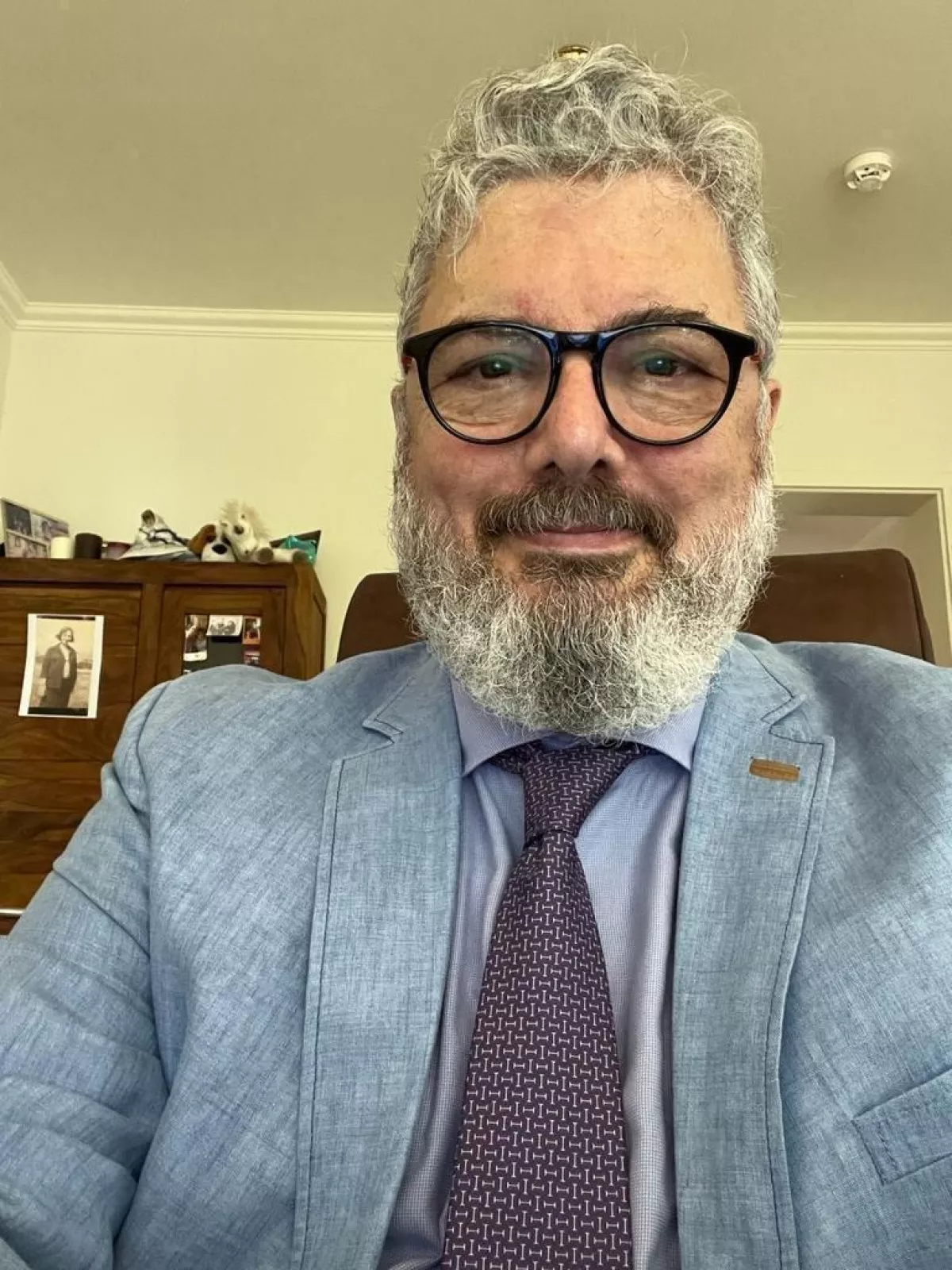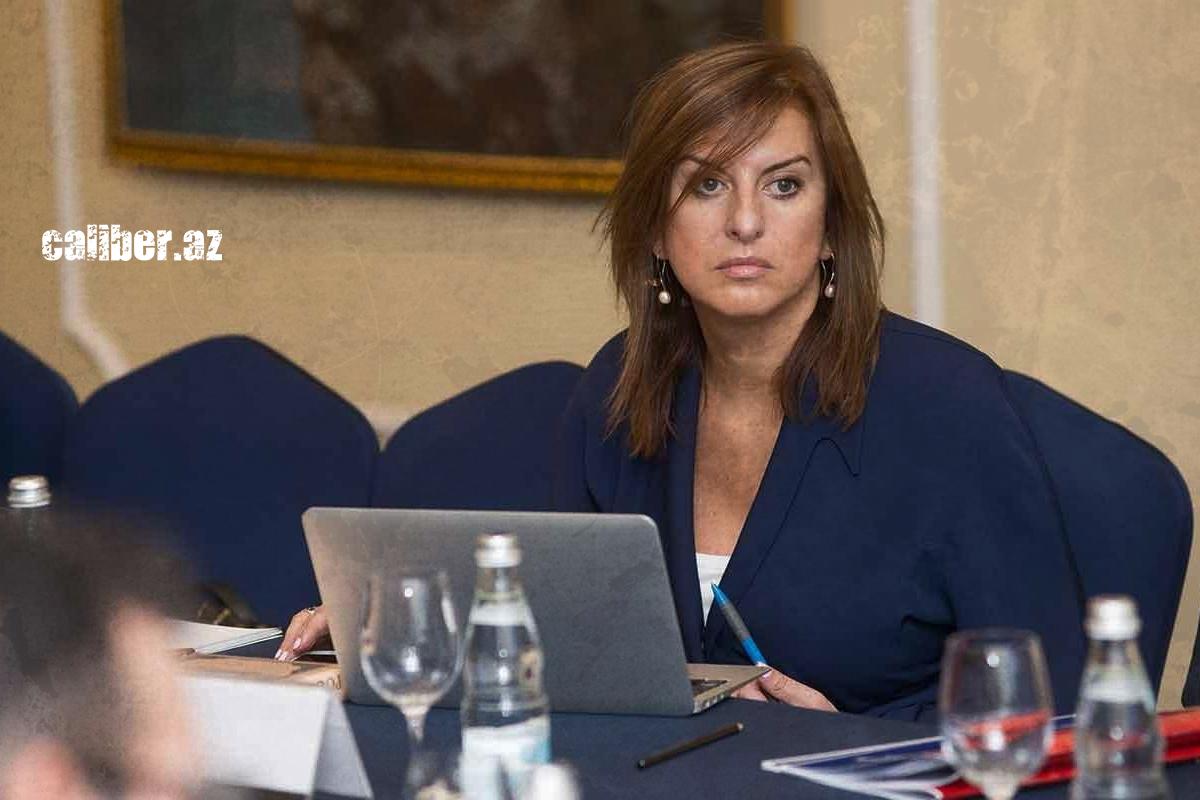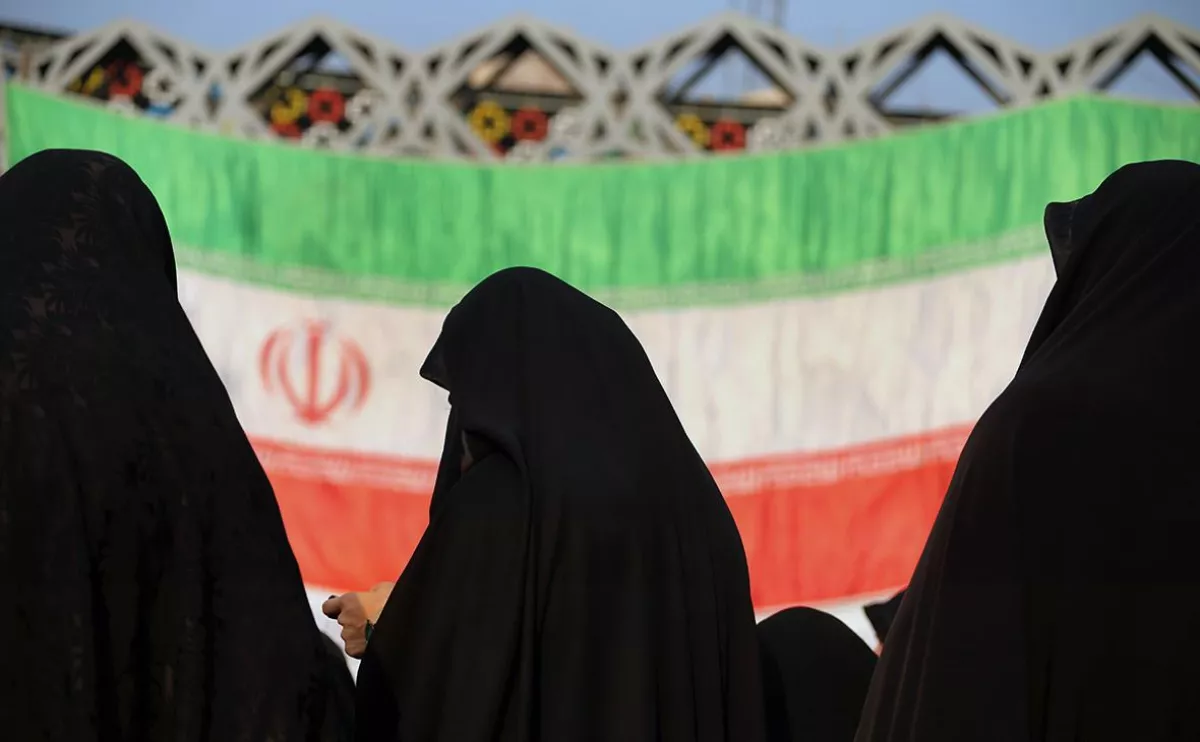Does Iran bid farewell to mandatory hijab? Experts on Pezeshkian’s statements
Iran's new president stated that the morality police will no longer "disturb" women for wearing the mandatory hijab. This announcement came just days after the UN warned that women continue to face harsh punishments for violating the strict dress code.
According to the BBC, Masoud Pezeshkian's statement coincided with the second anniversary of the death of 22-year-old Mahsa Amini, who was arrested for allegedly not wearing her hijab properly, sparking nationwide protests.
Last week, the UN reported that since then, the Iranian government has "intensified efforts" to suppress women's rights and stifle any remaining signs of activism. However, on September 16, Pezeshkian stated that the morality police should no longer confront women on the streets. He responded to a female reporter's question, who mentioned that she had taken a detour to avoid police vans on her way to the press conference. She was wearing a loosely wrapped scarf, with some hair visible underneath. When Pezeshkian asked if police were on the streets, she confirmed that they were. In response, he declared, "the morality police should not confront women. I will ensure they do not disturb them."
This is quite an interesting statement. Do the powers of the president of Iran really include the ability to instruct the morality police not to disturb women without hijabs on the streets? Can we believe that from now on, women will be able to walk freely and without issue in the cities and villages of Iran with uncovered heads?
Renowned experts on Iran shared their opinions with Caliber.Az.

Iranian political scientist and expert on Russian-Iranian relations Amir Mohammadi Chahaki noted that almost immediately after the president's statements, the head of Iran's Supreme Court, Montazeri, criticized Pezeshkian's comments about the morality police.
"Montazeri pointed out that at the president's press conference, there was a woman dressed in a manner inconsistent with Islamic values and the hijab law, but Pezeshkian directed his warning not at her, but at the morality police.
It is clear that under Iran's Constitution, all decisions of such magnitude and police conduct are regulated by the Supreme Leader, Ayatollah Khamenei. Pezeshkian cannot issue orders to the morality police. Interestingly, he used the phrase 'we have agreed' to imply that the morality police should no longer torment or torture women, suggesting that if such actions occur, we will intervene.
But there is a dilemma here. On one hand, the morality police were not established by the Supreme Leader's order. According to various accounts, it was created by a directive from the president. Some say this happened under Ahmadinejad, while others attribute it to Rouhani. In reality, all military power and even the police are subordinate to the spiritual leader. He appoints commanders and even their deputies. However, after each new appointment of a minister of the interior, the leader seemingly transfers part of his authority over the police to him. Thus, if there is an order from the Minister of Interior, in theory, the morality police should obey him. The issue is that after receiving such an order, the head of the morality police has the option to consult Khamenei for clarification: 'What should I do?'" the expert explained.
In his view, this situation should be interpreted differently.
"Pezeshkian's rise to the presidency was not coincidental. He passed through the vetting process of Iran's Guardian Council and received the support of Ayatollah Khamenei. When President Raisi passed away and early elections were called, Pezeshkian had backing from reformists. Previously, when he sought to run for parliament from Tabriz, he failed to pass the examination by the Guardian Council. At that point, the Supreme Leader ordered that he be allowed to stand for election, which enabled Pezeshkian to enter the parliament. When he won the presidential elections, he promised to implement comprehensive reforms, particularly in the economy, and improve relations with neighboring countries. He openly spoke in Azerbaijani and Kurdish, which was something new for Iran. Now, he aims to address issues regarding women. There has been a tradition since Rafsanjani's time where the president meets with the Supreme Leader twice a month. This suggests he may try to resolve the hijab issue behind the scenes—this is what I want to convey.
And it is also important to note one thing. Two years have passed since the movement sparked by Mahsa Amini's death. Initially, it was a women's movement, and then it became a nationwide movement for freedom of conscience. Following those protests, the situation in Iran has significantly eased on many fronts. If you walk through the streets, you will see that many women do not adhere to the hijab rules, and no one is being detained for it. The morality police sometimes selectively approach certain women without hijabs, but they resist. This has already happened.
Yes, Pezeshkian, with his position, wants to emphasize that he is the president of all Iranians. However, for example, his daughter wears not just a hijab but even a chador. At the same time, Pezeshkian has always stated that women should not be forced to dress in any particular way. I believe he wants to push this issue and will try to negotiate with the Supreme Leader. But there will be resistance from the ultra-right factions.
What will the outcome be? In any case, tragedies like the one that happened with Mahsa Amini will fade into the past. Women will not remain silent; they will continue to insist on their right not to wear the hijab. Therefore, Pezeshkian will also attempt to address this issue," Chahaki believes.

Lana Ravandi-Fadai, an associate professor at the Department of Modern East and Africa at the Russian State University for the Humanities and a senior researcher at the Institute of Oriental Studies of the Russian Academy of Sciences, stated that Masoud Pezeshkian, despite his intentions, cannot resolve the issue of women's persecution for "un-Islamic clothing" with words alone.
"However, he can gradually foster a more liberal atmosphere in society through his statements, making violations of Islamic dress codes viewed with more tolerance than they are currently. This is why the president is making such bold and confident declarations, fully aware that they may not change much in the immediate future. Nevertheless, he hopes that over time, some officials, civil servants, and even police may begin to listen to him, and the situation could gradually ease.
When we discuss the hijab in Iran, we need to clearly understand that conservatives still dominate the Iranian government today. The president is, of course, reform-minded and liberal, wanting to ease restrictions and prohibitions. But he is, metaphorically speaking, 'one reformist warrior in a conservative field.' His powers are quite limited because both the parliament and the Guardian Council (the body that oversees all legislation) as well as the Supreme Court are in the hands of conservatives. Most importantly, the Supreme Leader Ali Khamenei, who holds absolute power in Iran, supports the conservatives.
The conservative camp in Iran is unwilling to make any concessions regarding the hijab; they are convinced that all women, including foreign tourists, must wear headscarves (and strictly prohibit miniskirts and short sleeves) so that all Iranian women appear extremely religious in the eyes of foreign observers, which they manage to achieve. Foreign visitors to Iran indeed see women dressed in black with their heads covered, revealing only their faces and hands, which creates an impression of widespread fervent religiosity. As the well-known Russian Orthodox theologian Alexei Osipov remarked, 'When I first arrived in Iran, it felt as if I had entered a women's monastery'—such is the conservative and modest way women dress there.

But, as those foreigners who have managed not just to visit Iran briefly but also to engage with Iranians and live among them for several months say—at least in major cities—not all Iranian women are eager to strictly adhere to Islamic dress codes. Many of them are secular-minded, and some have even distanced themselves from Islam and become atheists. Many women and girls have come to a secular understanding of Islam. They continue to believe in the Islamic faith internally but do not feel compelled to wear a headscarf. If they do wear one, they believe that the state should not impose a hijab on secular-minded women against their will.
Therefore, if mandatory enforcement of Islamic dress codes were suddenly lifted, there is no doubt that a significant portion of women, especially young girls, at least in Tehran and other large cities, would immediately abandon the Islamic dress code and dress freely, much like women do in the West. This would be categorically unacceptable for the conservatives in power, who assert that under Islamic governance, the level of religiosity among Iranians has significantly increased, leading them to believe that almost all citizens voluntarily and zealously adhere to Islamic norms. Conservatives would undoubtedly experience great disappointment if they confronted the actual preferences of Iranian women. Thus, any talk of abolishing mandatory Islamic clothing is out of the question," the associate professor argues.
In her opinion, the focus should be on encouraging police to treat women with more respect and to refrain from using harsh methods, as seen in the case of Mahsa Amini.
"This is what Pezeshkian aims to achieve—not the abolition of the hijab, which is fundamentally impossible under Islamic rule, but a significant softening of the attitude toward women who violate Islamic dress codes. I believe this is a realistic goal, even if it takes time and is gradual. Incidentally, Pezeshkian's limited powers were highlighted by the strict response he received from the head of Iran's Supreme Court, the conservative Mohammad Jafar Montazeri, who warned the president to express the 'correct position' on the mandatory hijab and to refrain from such loose comments in the future. However, I think the president will continue to criticize certain members of the morality police for their harsh treatment of women, perhaps in a more cautious and veiled manner. As Pezeshkian once said, 'If non-Islamic clothing is a sin, then the way certain police officers treat women and girls is a hundred times greater sin,'" Ravandi-Fadai concluded.








